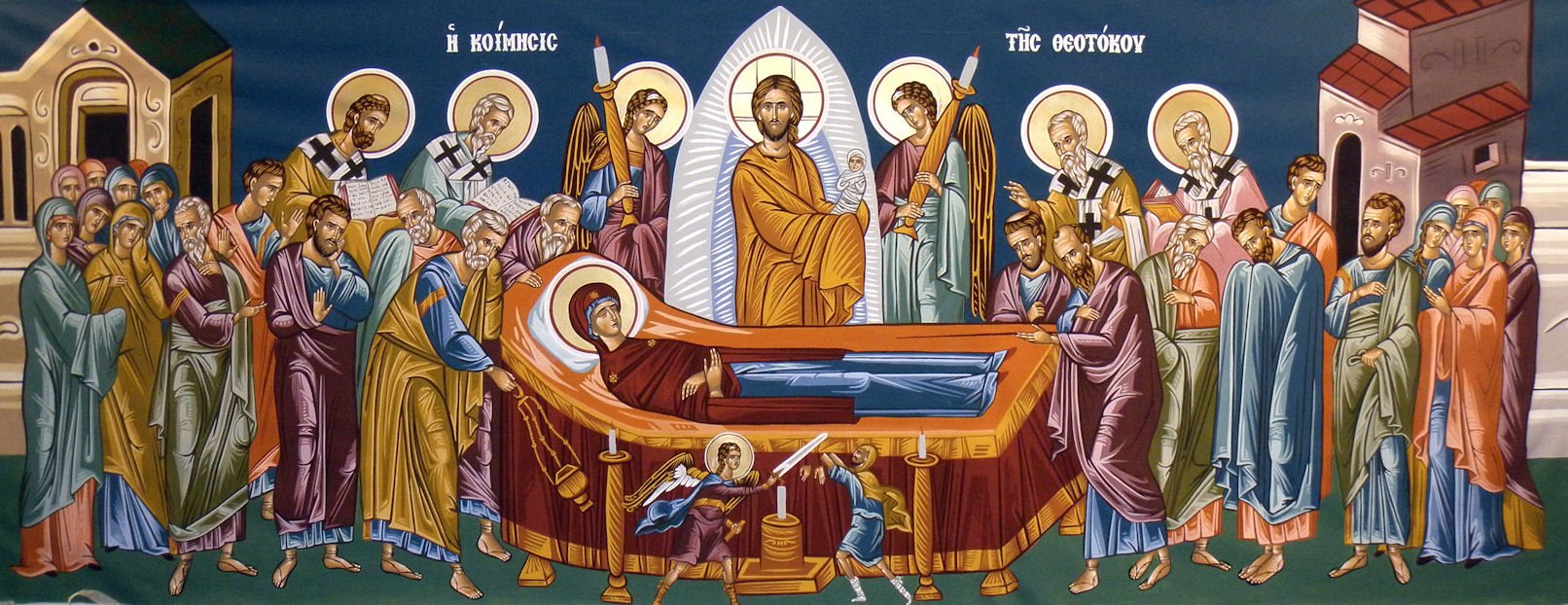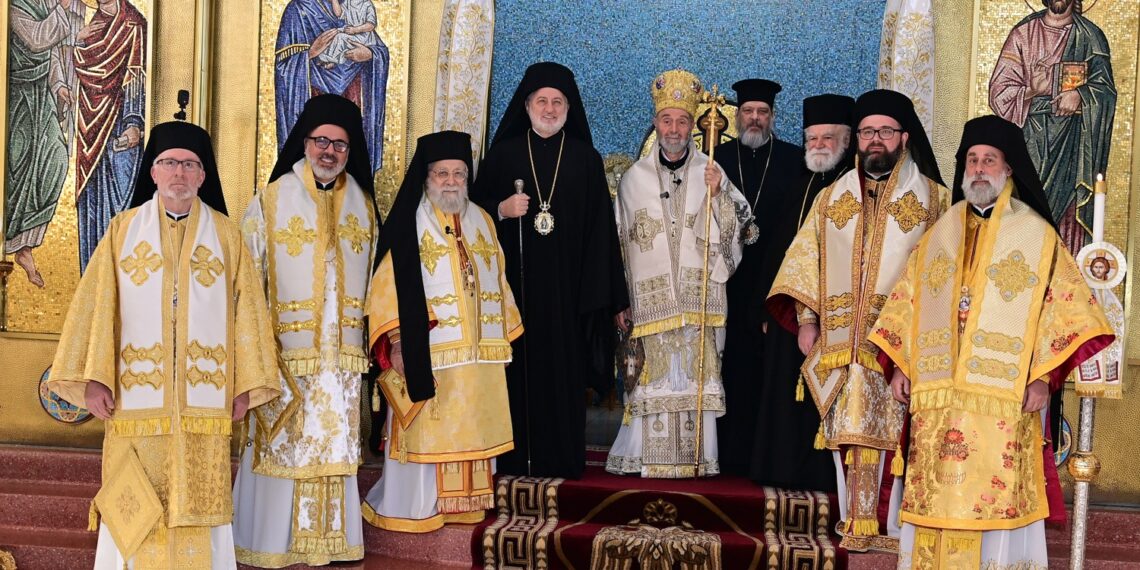The ‘Life-Giving Death’ of the Mother of God


By Dr. Dimitrios Hoilous
August is exclusively dedicated to the person of the Mother of God. Our veneration for Our Lady is justified since, as the most beautiful, demure, humble and holy woman in the world, she’s the best humankind has to offer to the deity.
During this period, everything’s inundated with the joy of her. The liturgical spirit of the days means that every evening for the first two weeks of the month we perform services of intercession in honor of the Mother of God. Everyone goes to church to set ‘all their hope’ on her. The culmination of this honor to Our Lady is 15 August, when we celebrate her dormition, burial, and, most importantly, her assumption into paradise.
The feast of the Dormition of the Mother of God brings us the glad tidings of a ‘life-giving death’. Our Lady succumbed to death, in accordance with the lot of all human beings, and was laid to rest in a grave, as everyone is. There is no one ‘who lives and shall not see death’ (Ps. 88, 49). But despite the fact that we’re faced with a death scene, we don’t lament the end of an earthly life, but we have hope and we celebrate an immortal dormition, because, in the end, ‘the grave and death could not contain’ Our Lady (kontakio for the feast). Elsewhere, Saint Andrew of Crete writes: ‘the grave had not the power to hold you’ (PG 97, 1100).
The feast of the Dormition of the Mother of God gives a completely different meaning to death, overturning every conventional pattern of mourning over the loss of people dear to us. For Christians, death is now made beautiful and lovely. It loses its tragic aspect, the sting is removed and it becomes a passport for souls rather than a place of incarceration. This is why the Dormition isn’t a day of lamentation and sorrow, on the model of Great Friday, but a day of joy, exultation and gladness.
The glorious Dormition of the Mother of God confirms the joy of the resurrection, as felt by angels and humankind: ‘At your glorious Dormition, the heavens rejoice and the armies of angels exult’ (Lauds for the feast)
The great feast of the Mother of God introduces us once more into the moving spirit of ‘joyful sorrow’ which doesn’t leave us feeling hopeless since ‘in your dormition you did not abandon the world, Mother of God’. The tomb of Our Lady becomes the path to her heavenly, royal throne. The Dormition is death which gives and brings life, heralding our own journey to resurrection and real life, far from the dismay and fear of death. The Mother of God is the first person to ascend into paradise, confirming with her own death the abolition of death as the human race had known it. Her death brings comfort, sweetness, hope and light into the hearts of the faithful, as well as rejoicing to the heavens: ‘At your glorious Dormition, the heavens rejoice…’.
This is why this period of time has come to be known as the ‘Summer Easter’. A second Easter, holy, spotless, life-giving for us because truly ‘the laws of nature have been overcome’. And the feast of the Dormition of the Mother of God is indeed Easter, since we celebrate and honor the ‘Assumption’ of her body, that is the supra-natural ascent of her body into heaven. With the Summer Easter, we celebrate the victory of life over death. Easter, i.e. Pesach, means passover, transfer, a change of place and location, which is why the dormition means for us the passing over of the Mother of Life into real life. Our Lady ‘passed over into life’ in order to stand at the right hand of her Son and God as ‘Queen’, ‘clothed in vesture’ and ‘arrayed in divers colors’.
Therefore the feast of the Dormition of the Mother of God is a message of hope for people of all times. Her grave became a source of life and her dormition a passport from the vain and the fleeting to the divine and permanent.
Our Lady comforts, encourages, and calms everyone who seeks help from her, while, through her life, she teaches us meekness, humility and patience. She shows us the true path at every difficult moment of our lives. This is why we may freely venerate her: to thank her gratefully for her great benefactions and celebrate her for her acts of charity.
Source: pemptousia.com




